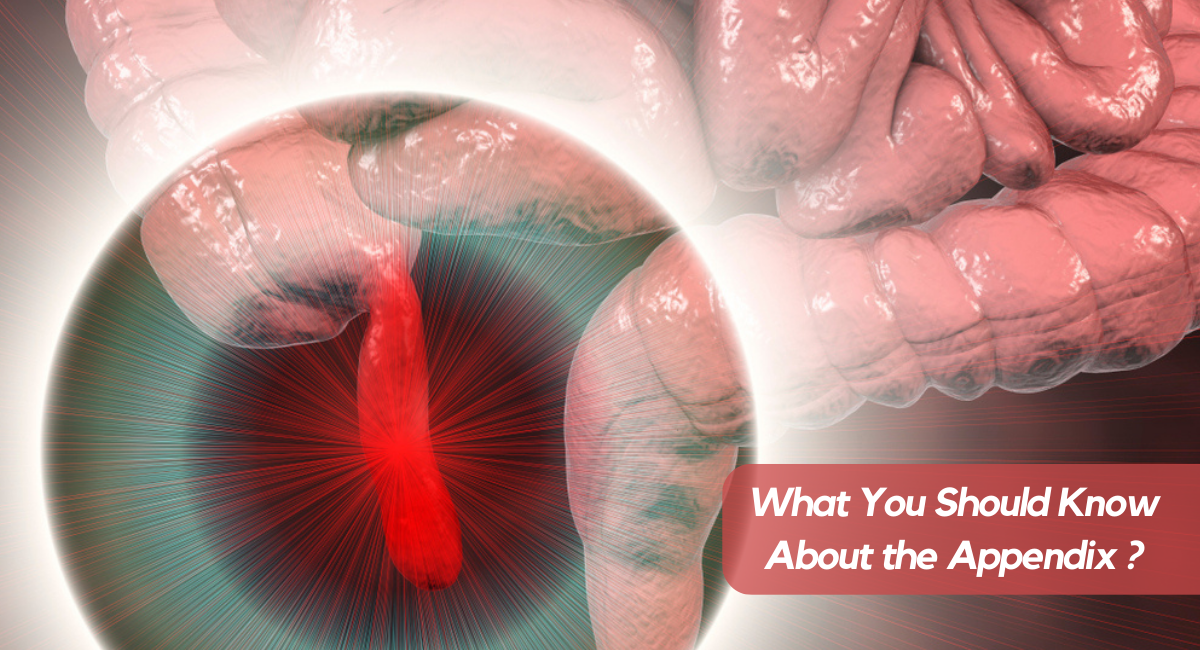What You Should Know About the Appendix?
What is Appendicitis?
It is a condition characterized by an inflammation of the appendix, a small sac-like structure attached to the colon.
Types of Appendicitis
The condition is differentiated into two types. These are:
Acute Appendicitis
It arises due to a total blockage of the vermiform appendix and in some cases, a bacterial infection. It is the most common cause of abdominal distress and pain in children and teenagers worldwide.
Chronic Appendicitis
It is a much rarer and milder variation of the illness.. It develops slowly and is characterized by the inflammation of the appendix. The symptoms are generally less pronounced in this form with some sufferers only experiencing a general feeling of illness and fatigue. The signs of this syndrome may vary from person to person.
What Causes Appendicitis?
Some of the main causes of Appendicitis include:
Physical blockage – Obstruction of the appendix by stool or foreign objects can give rise to this syndrome.
Cancer – In rare cases, a cancerous tumor may also be a cause of the blockage of the appendix.
Infection – Obstruction may also occur due to an infection. An infection in the body can make the appendix get inflamed as a natural reaction.
Appendicitis Symptoms
The classic symptoms of Appendicitis are:
Loss of appetite
Inability to pass gas
Mild pain near the upper abdomen or the navel which becomes sharp on shifting to the lower right abdomen
Nausea
Vomiting
Fever, with body temperature between 99° and 102° F
Abdominal inflammation (swelling)
Some other symptoms arising in half of all Appendicitis sufferers include:
Acute cramps
Painful urination
Sharp or dull pain arising anywhere in the lower or upper abdomen, rectum or back
Diarrhea or constipation with gas
Appendicitis Diagnosis
Appendicitis is generally diagnosed with the aid of physical examination and laboratory tests. appendix doctor usually presses the lower right abdominal region in a gentle manner. If pain aggravates even on mild touch, it can be an indication of Appendicitis. In later cases, the condition is usually diagnosed with the aid of medical tests like:
Abdominal X-ray exam, to detect inflammation
CT scans
Ultrasound scans
Blood test, to check whether the body is combating infection
Urine test, to rule out a urinary tract infection
Laparoscopy
For most sufferers of this disorder, blood tests serve as an essential diagnostic test. In some cases, a rectal examination is conducted to check for tenderness on the right side of the rectum.
Appendicitis Treatment
Treatment for this condition is mainly surgical. If a sufferer is not found to suffer from complications, the appendix may be removed with the aid of an operative procedure known as Appendectomy.
If a diagnosis reveals an abscess from a torn appendix, the infection must be treated first. In such cases, the appendix will be removed after the inflammation and infection have gone away.
Appendicitis Surgery
The conventional appendix removal surgery for this illness is an appendectomy. Before surgery, antibiotics are administered to stave off possible Peritonitis. The operation is carried out under general anesthesia and removed through laparoscopy. Patients generally get up within 12 hours of the operation and return to normal activities within 2-3 weeks.
Appendicitis Prognosis
The prognosis of this condition is usually quite good after cure. If the appendix is removed before its rupture, recovery will likely be faster after surgery. If the rupture occurs before the operation, recovery will probably be slower and more likely to give rise to other complications. An abscess may also develop in some cases.
Appendicitis Recovery
In sufferers of Appendicitis, time for recovery depends on factors like age, complications and other situations, such as the amount of alcohol consumed by the person. Usually, patients make a recovery between 10 and 28 days. Young kids, who are around 10 years old, take about three weeks to recover.
Appendicitis Complications
Most patients of this disease easily recover after surgical treatment. However, complications may arise if treatment is delayed or if there is a development of Peritonitis. If not treated in time, this disorder can give rise to complications like:
Abscess
Peritonitis, a type of infection within the abdomen
Unusual connections between the skin surface and the organs (fistula)
Abnormal connection between abdominal organs
Obstruction of the intestine
Infection arising from the surgical wound
Appendicitis Prevention
It is not possible to prevent this condition. However, the disorder has been found to be less common in individuals who consume foods rich in fiber, such as vegetables and fresh fruits.



.png)
Comments
Post a Comment